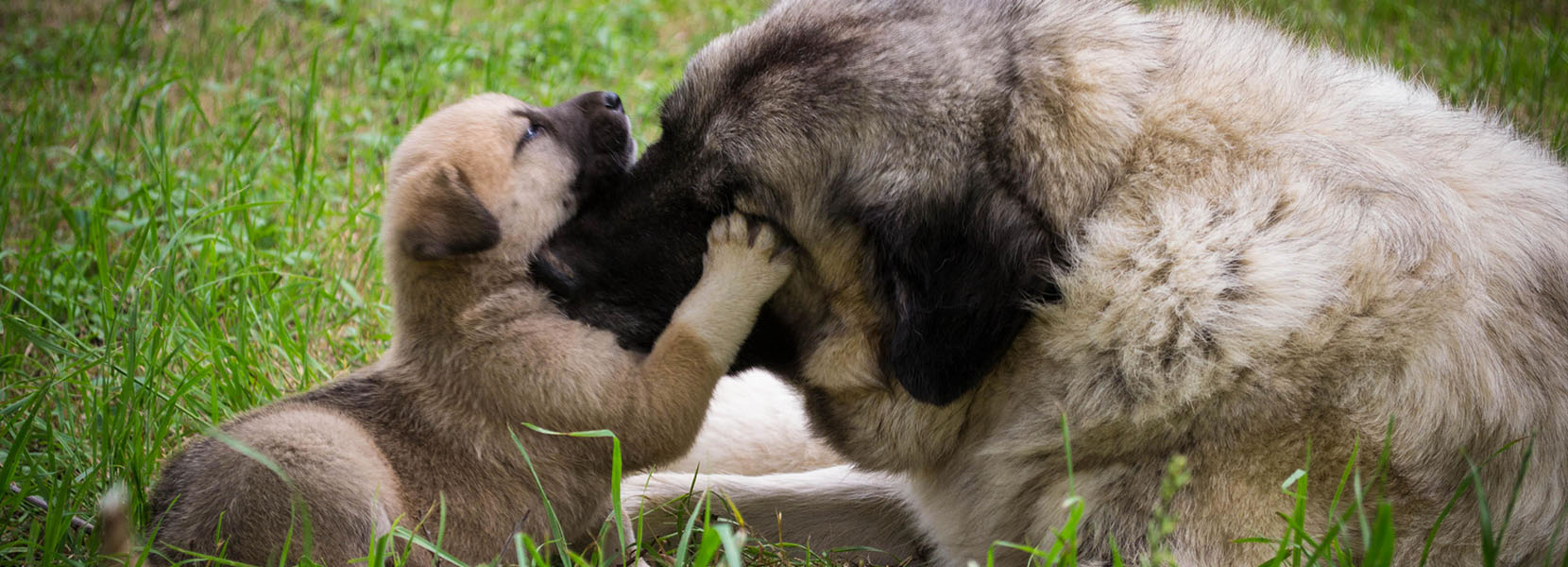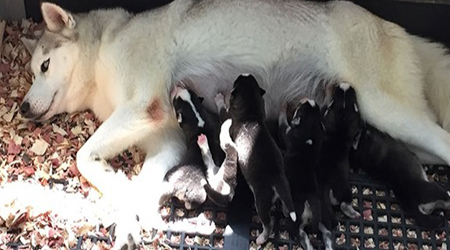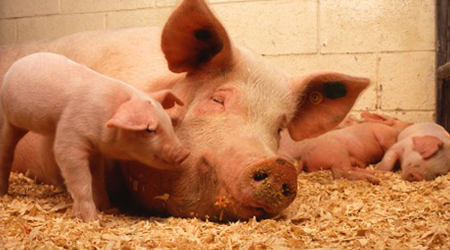
Current Research

Welfare of Breeding Dogs
The welfare of dogs housed in commercial breeding facilities is of great public concern. However, little research has been performed to examine the welfare status of the dogs on-site at kennels, characterize the nature and extent of welfare problems experienced, and explore solutions. We are developing tools to evaluate the behavioral and physical welfare of commercial breeding dogs and create practical recommendations to improve their lives and those of their puppies.
Learn More
Feline Welfare
Each year millions of cats are confined to cages in veterinary hospitals, shelters, and biomedical research facilities. We have investigated factors that impact how cats’ respond to confinement including aspects of the cage and housing room as well as individual differences in coping style and the quality of human-cat interactions. This research aims to identify the highest quality environment to promote cat welfare.
Learn More
Agricultural Animal Bioethics
While science addresses the question of what can be done with animals to produce food and fiber, ethics addresses the question of what "ought" to be done. Training of leaders in U.S. animal agriculture to better understand and facilitate resolutions on publicly debated issues pertaining to agricultural animal bioethics is critically needed to adequately prepare young scientists and future animal industry leaders in this important trans-disciplinary subject area.
Learn MorePrevious Research
Farm Animal Cognition and Welfare



Pig cognition
Cognitive processes such as learning, memory, and problem-solving are critically important for animals to adapt to the environments in which they are kept. Because the pig’s psychological processes may impact its physical well-being in a given environment, they have implications for animal production. For example, a pig’s ability to learn and remember interactions with people raises concerns that if their experiences and memories of those are unpleasant, they may be fearful or distressed and suffer accordingly. Likewise, production environments that are relatively barren may provide pigs with inadequate mental stimulation, which may cause them to experience psychological distress or suffering in the form of boredom, frustration, and other unpleasant emotional states. Our research has focused on the cognitive abilities of pigs and their potential applications to their care and management. We have shown that pigs are capable of fairly complex cognitive processes, such as operant learning, visual and olfactory discriminations and concept formation.
Project members: Candace Croney (PI)
- A note on visual, olfactory and spatial cue use in foraging behavior of pigs: Indirectly assessing cognitive abilities
- C. Croney. 1999. Cognitive abilities of domestic pigs

 By using our website you agree to our
By using our website you agree to our